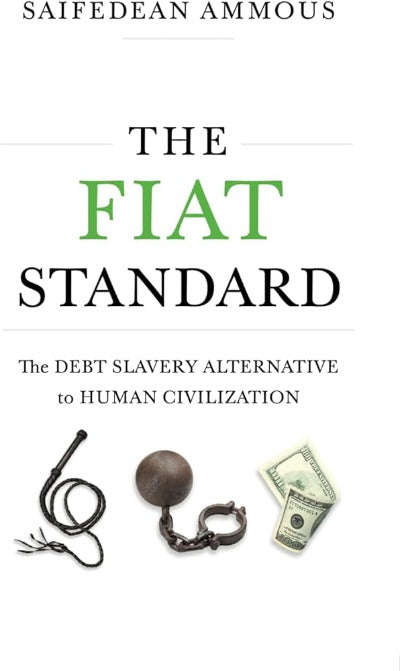1
/
of
1
98Bookscart
The Fiat Standard (Paperback) by Saifedean Ammous
The Fiat Standard (Paperback) by Saifedean Ammous
Regular price
Rs. 499.00
Regular price
Rs. 499.00
Sale price
Rs. 499.00
Unit price
/
per
Shipping calculated at checkout.
Couldn't load pickup availability
-
Product details
- Publisher : Saif House (16 November 2021)
- Language : English
- Hardcover : 382 pages
- ISBN-10 : 1544526474
- ISBN-13 : 978-1544526478
- Item Weight : 712 g
- Dimensions : 15.24 x 2.54 x 22.86 cm
In The Fiat Standard, world-renowned economist Saifedean Ammous applies his unique analytical lens to the fiat monetary system, explaining it as a feat of engineering and technology just as he did for bitcoin in his global bestseller The Bitcoin Standard.
This time, Ammous delves into the world’s earlier shift from the gold standard to today’s system of government-backed fiat money—outlining the fiat standard’s purposes and failures; deriving the wider economic, political, and social implications of its use; and examining how bitcoin will affect it over time.
With penetrating insight, Ammous analyzes global political currencies by analogy to bitcoin: how they’re “mined” whenever government-guaranteed entities create loans, their lack of inherent restraints on inflation, and the rampant government intervention that has resulted in heavy, devastating, and persistent distortions to global markets for food, fuel, science, and education.
This time, Ammous delves into the world’s earlier shift from the gold standard to today’s system of government-backed fiat money—outlining the fiat standard’s purposes and failures; deriving the wider economic, political, and social implications of its use; and examining how bitcoin will affect it over time.
With penetrating insight, Ammous analyzes global political currencies by analogy to bitcoin: how they’re “mined” whenever government-guaranteed entities create loans, their lack of inherent restraints on inflation, and the rampant government intervention that has resulted in heavy, devastating, and persistent distortions to global markets for food, fuel, science, and education.
Share


